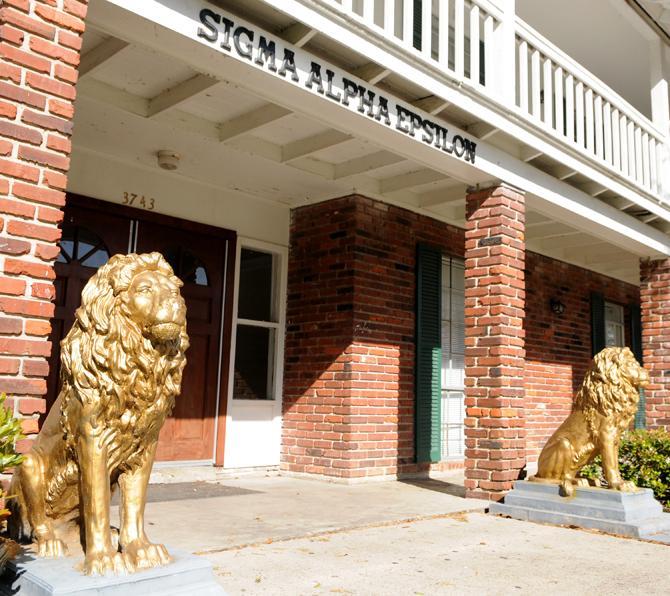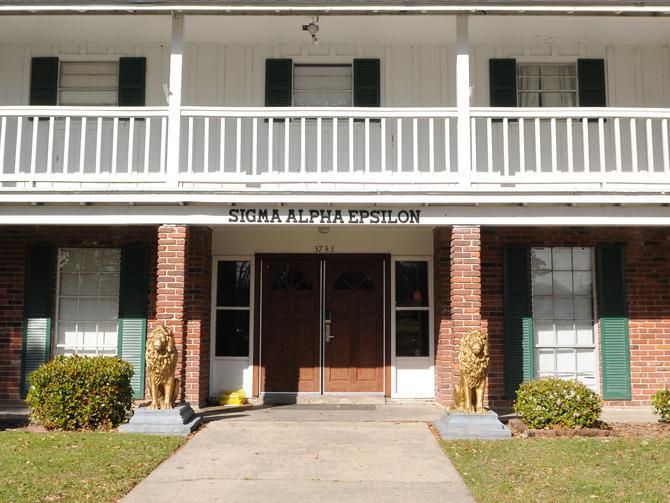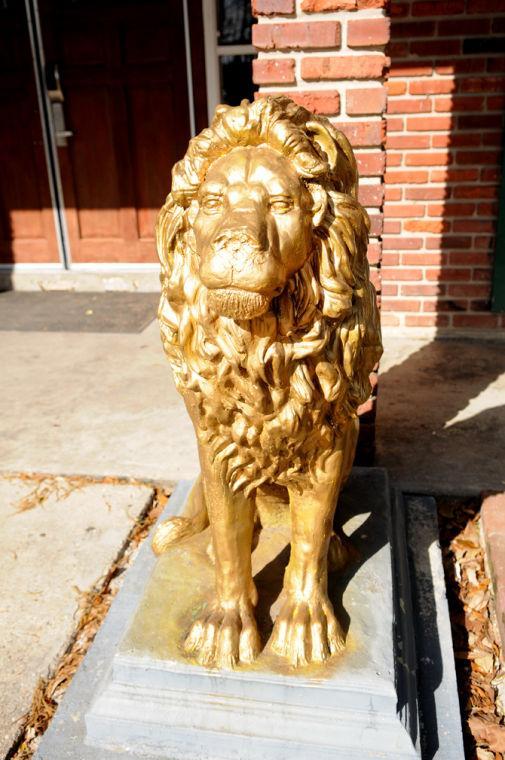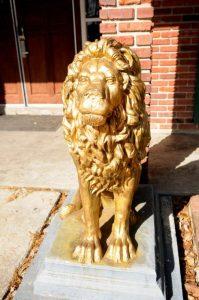The mission statement of the Sigma Alpha Epsilon fraternity is “to promote the highest standards of friendship, scholarship and service for our members based upon the ideals set forth by our Founders and as specifically enunciated in our creed.”
But amid senseless hazings taking various forms from the fraternity on the LSU campus, the founding principles of Greek organizations were forgotten by some, as revealed by documents recently released to The Daily Reveille by Associate Vice Chancellor and Dean of Students K.C. White. The documents revealed that the fraternity accepted charges of hazing, sexual harassment, sexual misconduct and endangering the safety of others.
As of Nov. 16, the University’s chapter of the Sigma Alpha Epsilon fraternity is no longer active on campus after an investigation into rumored hazing — sexual in nature — proved to be true. Details of the investigation’s findings and the organization’s consequences are specified in an “outcome document” that White recently released to The Daily Reveille.
HAZING ON CAMPUS
“SAE new members/pledges, for at least the past two years and possibly prior to that, were instructed by the Pledge Educator and Pledge Council to continue a tradition involving the painting of the lions located in front of the chapter house as a result of taking the virginity of a sorority woman,” according to the document’s first sentence.
On Aug. 30, 2012, a new, unnamed member of the fraternity completed the assignment, supplying a video of the sorority woman involved for evidence, which was shared with the Pledge Educator and other chapter members, according to the document.
The victorious pledge was told to purchase spray paint to paint the lion statues the colors of the sorority woman’s chapter’s colors. The tradition dates back to at least 2009, and it was discovered the lions were also painted in 2010 and 2012, according to the document.
The investigation led to surfacing of other hazing incidents in past years.
During the 2011 new member period, new SAE members were forced to partake in “physical activities, including, but not limited to, calisthenics, bows and toes, wall sits and military-style workout sessions,” which were typically held on Sundays from 10 p.m. until 2 or 3 a.m.
A full house cleanup occurred at the end of each session.
Additionally, new members were directed to purchase “tobacco products, lighters, condoms, velcro tennis shoes and yellow men’s trousers.” The same members were also required to be on call around the clock at the chapter house for the purpose of personal servitude. At least two new members were on-call in shifts.
The fraternity’s national organization confirms the aforementioned charges and also found that members in past years were forced to sit in ice baths and required to learn and recite the “True Gentleman,” a creed describing how gentlemen should behave. Part of the recitation states that the true gentleman is the man “who thinks of the rights and feelings of others, rather than his own; and who appears well in any company, a man with whom honor is sacred and virtue safe.”
“Sigma Alpha Epsilon will not tolerate hazing or behavior that violates risk-management policies or the general guidelines for chapter operations,” said Brandon E. Weghorst, associate executive director of communications at the national headquarters of Sigma Alpha Epsilon, in a statement to The Daily Reveille in January. “The organization expects its chapters to adhere to stringent policies and practices that help our members become gentlemen and leaders and to live up to our creed and principles.”
The fraternity’s national organization website states that SAE maintains a zero-tolerance policy for hazing and is one of the sponsors of the national, anonymous anti-hazing hotline at 1-888-NOT-HAZE.
THE BIGGER PICTURE
According to a national study titled “Hazing in View: College Students at Risk,” conducted by Elizabeth Allan, Ph.D. and Mary Madden, Ph.D. from the University of Maine, 55 percent of college students involved in clubs, teams and organizations experience hazing.
The same study reports that as of Feb. 12, 2010, the number of recorded hazing, pledging or rushing-related deaths in fraternities and sororities tallies at 96 — 90 males and six females. Also, students who identified their experience as hazing in 95 percent of cases did not report the events to campus officials.
LSU’s chapter was given two options in handling the allegations against the student organization’s misconduct, pursuant to the University’s Policy Statement 52.
The president or designated officer may opt for an administrative decision by the Office of the Dean of Students, or the matter can be referred to a University Hearing Panel, consisting of one student, one faculty member and the Vice Chancellor for Student Life, for resolution.
On behalf of SAE, Patrick Fitzsimmons requested an administrative decision, rather than taking the issue to a panel.
RESULTS
The fraternity’s ban from campus will continue through Dec. 31, 2014, and no request for reinstatement of registration will be considered before Jan. 1, 2015. Several other terms of the removal were listed.
When and if the organization does return to campus, the chapter must be under the direction of an Alumni Commission, which will be trained by the national organization and will not include any of the advisers or members of the undergraduate chapter from 2011 to 2013.
“A representative from the national organization must be in resident from the formation of the colony through the chartering of the chapter,” according to the outcome statement. “The purpose will be to ensure that the chapter institutes the policies, procedures and protocols of the national organization to include, but not limited to, internal management as well as adherence to new member education policies.”
This incident isn’t the first occurrence of hazing by SAE members.
George Desdunes, a 19-year-old pre-med student and new member of Cornell University’s SAE chapter, died during a fraternity ritual in 2011, according to a The New York Times article. Three former members were accused of making Desdunes drink excessive amounts of alcohol during an induction ritual but were found not guilty.
The article describes how Desdunes and another member of the fraternity were blindfolded, bound and quizzed about the fraternity’s history. A wrong answer meant the new members had to drink vodka, which continued until Desdunes passed out and eventually died.
Though the individual members were found innocent, the fraternity itself was charged and found guilty of hazing and other violations, resulting in its chapter at Cornell being disbanded, according to the Times’ article.














